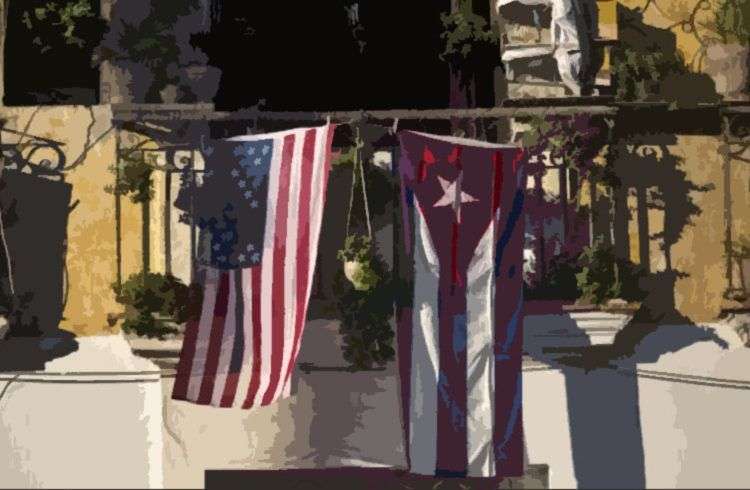This week I open a parenthesis to talk about what everyone talks about. My tales of Belize can wait seven days. The news obviously has rocked the country. Few, very rarely, the National Television News has information so overwhelming. Maybe I should talk about the poor role played by national media in covering the event, at least in the early stages, but the truth is that now I do not want to talk about journalism in Cuba.
Already I have done it in this column and generated a debate which now I do not feel prepared to address. A Cuban friend who lives in Canada told me, “for now enjoy the news, we’ll have time to get into a fight later for what it actually represents.” You are absolutely right. Let us rejoice as most Cubans in Cuba (almost all, there are some, you know who, who are very upset and feel deeply betrayed by Obama, someone came to say only good thing about this deal is that Cuba freed Alan Gross); we trust that this will mark a new path, a new era, a hand, an opportunity to fulfill the dreams of many people, etc, etc, etc … Let’s trust, but to me, frankly, I don’t have it very clear.
Of course I’m glad that Obama has made this decision, I applaud he reached the agreement talking personally with Raul Castro, I think for people to understand each other they have to at least stop attacking each other, and I know that the measures have a strong impact in the field of international relations, specifically in our region. But excuse me if I do not look too optimistic in the immediate effects on the life of ¨regular¨ citizens.
Some, those with close family and friends, with money- in the United States will benefit from the increased volume of remittances. But then to think that in a few weeks we will be eating McDonalds in Havana goes a long way. And let me also say that if McDonalds arriving soon there will be much cheaper than the burgers that now sell coffee shops that accept foreign currency. The blockade (or embargo, to avoid disturbing potential readers) is still there. Some believe that it will fall tomorrow; I say that remains to be seen.
Clearly, the country will have more financial facilities, and more Americans will come to spend their dollars here … but for serious, mutually beneficial investment, will have to wait a while. (And one more time for those investments to translate into benefits for people). I’ll tell you one thing that maybe it has been said many times but it never hurts to remember: the main Cuban problems must be solved in Cuba.
I want to believe that we have reserves and potential to do so. I say more: the much-bandied issue of the need for greater empowerment of the people, must be, first and ultimately the responsibility of the people. No one is coming to do it for us. OK: let´s debate, discuss, negotiate in diplomatic forums and protocol environments, it does not hurt; but the debate, the most important discussion we have to promote it internally. I am almost convinced that dialogue with the United States is not going to move a lot of chips of the routine domino Cubans are living in Cuba. Well, let’s see where the bulls move. I am very sorry that my father is dead. He would have loved to witness this. Once, amid slogans on a march for May Day, he said: “You see that one day we will make peace with the United States, it will be sooner or later, and the pioneers who now sing it of Cuba yes!, Yankees no! They will have to sing Cuba yes, Yankees too! “. You are exaggerating, I said then. For now it is best not to call the Americans Yankees, we know they do not like it one bit. Pardon me and long live the unbreakable friendship between the peoples of Cuba and the United States!











There is no Yankees, if you have a doubt ask your master Hugo Cancio the Yankee that pays you.
I believe you are correct about the need for Cubans to work toward mutually beneficial American investments, and I hope the Cuban bureaucracy is able to adapt to make that happen. American tourism is only part of the answer and, at the moment, the level of resources available in Cuba may not meet the expectation of many American tourists. And I worry that young professional Cubans who could participate with American companies in creating better jobs for Cubans may opt for working in the tourism industry where CUCs can be had. For many Americans, the embargo doesn’t make much sense. The debate seems to be more among Cuban-Americans and the fact that many live in Florida, a key political state, so it is sensitive in a presidential election year. By the way, I have no problem being called a Yankee, as long as it isn’t intended as an insult.